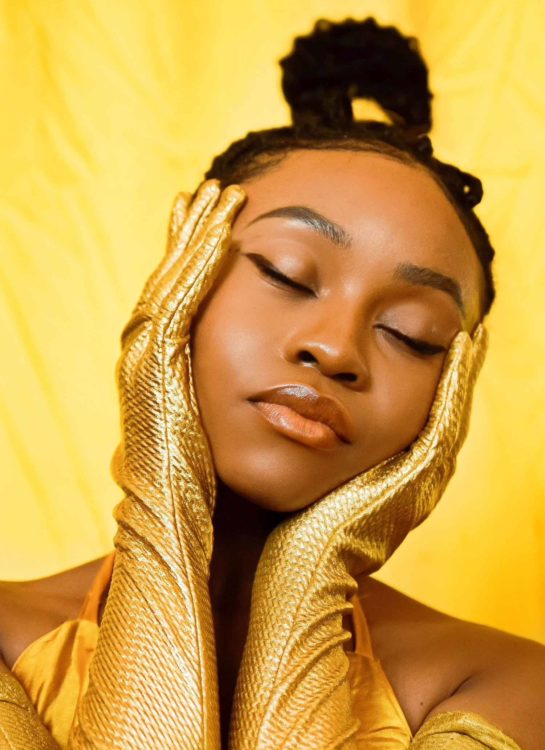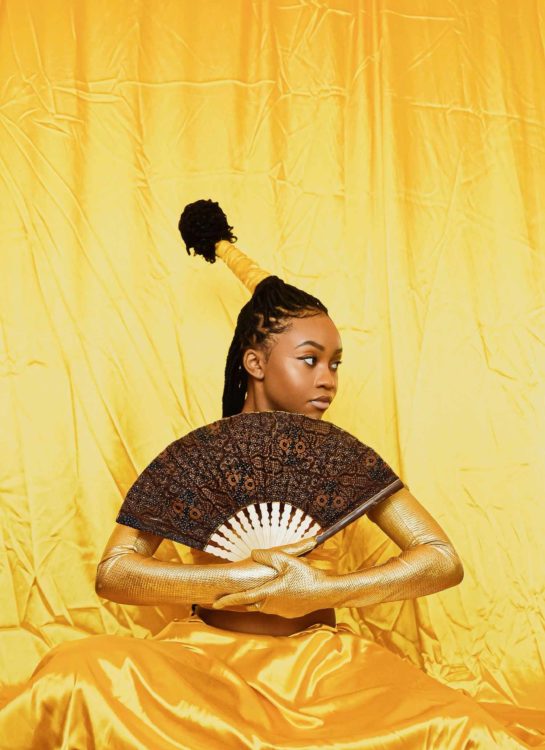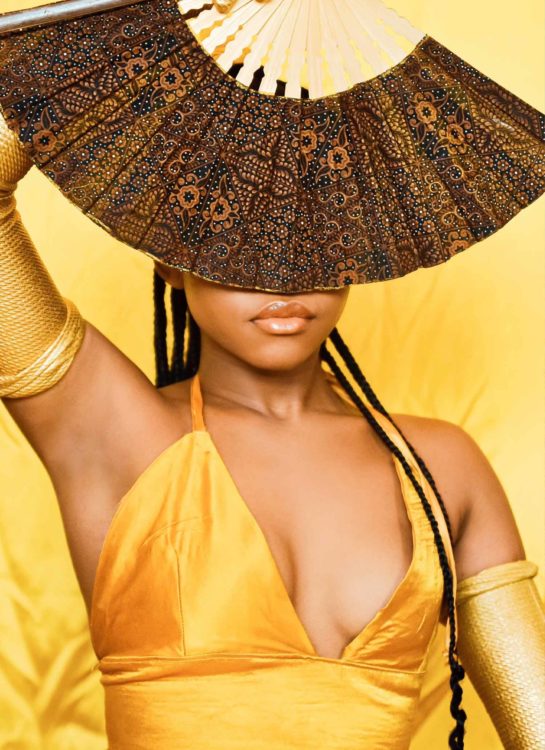- Words Louis Rabinowitz
Mwanjé chats to Notion about her new project's exploration of heritage and connection, the meaning of enlightenment and her belief in the power of music to change societies.
In her music, Mwanjé’s mission is one of connection, both cultural and personal. From the beginning, she has been preoccupied with questions of self-realisation and what it truly means to become oneself in the modern world. There’s a spirituality throughout that reflects the values with which she was raised – the idea that there is something greater to reach for in life, and something bigger than the self.
She has put those values excitingly to action in her latest single, “Call 2 The Diaspora”. In the song, Mwanjé connects fully and proudly with the multiplicity of pan-African artistry. The music video is filled with intricate realisations of African cultural touchstones, such as Nyanja, Bemba and Setswana dialects, traditional dance of the Tumbuka tribe of Zambia and Malawi from which Mwanjé’s father came, and the colours of the Zambian flag.
At its centre is Mwanjé, who was born and raised in Botswana but whose roots stretch across the continent. The cultural celebration becomes a metaphor for personal realisation and enlightenment, showing her ability to fuse together the universal and the specific in her own unique way.
To mark this impressive step forward for a burgeoning artist, we sat down with Mwanjé to chat about her use of symbolism, belief in the power of music, and her choice of collaborations.


The “Call 2 the Diaspora” video is filled with symbolism and beautiful scenes from various African cultures. Can you explain the creative process behind conceptualising and making it?
I touch on so many topics and themes in this piece, I wanted to make a music video that visually captured the meaning/essence of what I was trying to communicate, so it only made sense to have a series of woven scenes in a narrative form. I was inspired by various experiences and artwork that resonated with me. It was important to show myself bare, fully embellished, in a loving and healthy partnership and amongst my people expressing my culture. These are all areas of life that I value. All in the same being.
Why did it feel right to gesture to the heritages of both your parents in the video?
“Call 2 The Diaspora” is the deepest piece of music I’ve ever released and the closest thing to a representation of Mwanjé. My parents, family and culture are a huge part of my make up. It was important to express my true origin story, which is beyond me. I was born and raised in Botswana, and didn’t have the opportunity to fully engage in my culture, so as an adult I take every opportunity to do so.
The video is so crucial to the meaning of this new song. Did that change the way you look at music videos as part of your work?
I tend to write in a very cryptic way, I see videos as a more obvious way to communicate the message of a song. They are a creative landscape in which I can do whatever I please. I wanted every shot of this video to be symbolic of what I’m trying to communicate. I wanted it to be art. I think that’s the main lesson I’d like to carry on to my next project.
What was your motivation behind choosing to work with fashion designer Bwana D?
Bwana D is family and one of the best that the Zambian fashion scene has to offer. She is a pioneer in her own right and her skillset is out of this world. I believe in working with people I can learn from, and when I sent her the concepts I had in mind she executed them beyond what I could have imagined. We both have a deep love for fashion as a creative outlet and it only made sense we worked together.


Your upcoming EP touches on some really universal themes of growing up. What do you hope listeners take away from it?
I hope listeners take away the fact that they are not alone. There are universal themes we all experience individually, and at times it can be so lonely and isolating. I’d love everyone to know that it’s normal to feel confused and have doubts at times because you’ll also feel special and worthy during other times. Experiences and emotions can be a rollercoaster but it’s alright to express yourself at whatever point in life you’re in. It truly was about release for me, and I hope people find a sense of release in it too.
How do you factor spoken word poetry into your music?
I began writing poetry in Form 2 (Grade 9), that slowly progressed into putting melodies to them until I started to write full songs. That’s often my approach to writing music today and still feel like its relevant to my journey. “Call 2 The Diaspora” is the most honest piece on this project, that comes down to me returning to where it all started.
What kind of social change do you think music can affect?
Music is a reflection of the times. Honest music is an honest account of the times. Shedding light on your reality and environment, showing the humanity and shared experiences within these spaces allows us to see more humanity in each other. It connects us further. It’s always about love and connection.
What’s inspiring you outside of music right now?
Life. My life is changing in big and small ways right now. I’m learning a lot about myself and the world. Art and fashion. Any expressive outlet that allows me to express who I am.
What does enlightenment and self–love mean to you?
Self-acceptance, realising the highest version of myself and living in it.
What are your hopes and dreams for 2022?
To continue growing as an artist and within the movement of African artists on world stages. More travel, more collaborations, more opportunities to show what I represent and want to see in the world.

